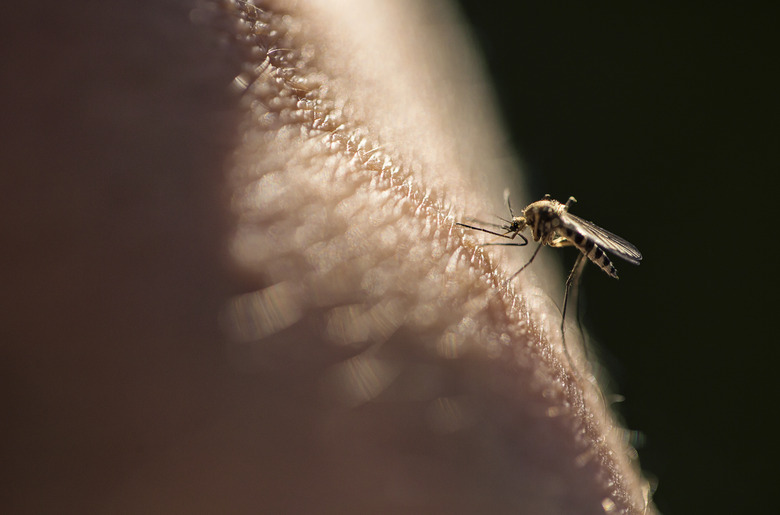This Is Why Mosquitos Love To Bite You, According To Science
Nothing spoils a summer night out like the buzz of a mosquito past your ear ... or the constellation of red, itchy bites that show up after. Yup, while mosquitos might be great for the environment in some ways – scientists say they're important for some Arctic and aquatic ecosystems – they can still be pretty annoying.
And if you feel like you're always the one who gets bitten first – and bitten a lot more – among your friends, it's not all in your head. There's a science to how mosquitos find people in general (and zero in on some people in particular). Here's how it works.
It's All That CO2
It's All That CO2
Respiration – inhaling oxygen and exhaling carbon dioxide – is, well, kind of a 24/7 job for survival. And many blood-eating species have adapted to use carbon dioxide as a sign that a potential meal is nearby.
So your friends' breathing is enough to draw mosquitos to your general area. But why do they seem to be targeting you specifically? Well, the amount of CO2 relies partially on your metabolism. So if you've got a naturally high metabolism, you're probably exhaling more carbon dioxide than your squad, and you attract more mosquitos.
You'll also raise your metabolism – and up the amount of CO2 you exhale – by getting more active. So don't be surprised if you wind up with a bite or two after a tough hike or run.
It's Your Body Chemistry and Genes
It's Your Body Chemistry and Genes
Some of the things that attract mosquitos are completely out of your control. And your can blame your unique physiology for making you oh-so-delicious to mosquitos. The science shows that mosquitos are more attracted to people with Type O blood than they are people with Type A or Type B blood.
The bacteria that naturally live on your skin can affect how many mosquitos you attract, too. People who naturally have more bacteria on their skin tend to attract more mosquitos, the science says.
You Wore the Wrong Shirt
You Wore the Wrong Shirt
While mosquitos are guided by chemical signals, like carbon dioxide, they also use visual cues to find their prey. Specifically, mosquitos are more attracted to people wearing dark colors. That might sound counter-intuitive, since most insects seem to love bright colors. But mosquitos come out when it's dark, and generally see dark objects better than light ones. So a white or light-colored shirt may help steer 'em away from you.
You Forgot the Repellant!
You Forgot the Repellant!
We know, covering yourself in bug spray isn't always the most enjoyable part of a summer trip. But it's important for protecting yourself, since mosquitos (and other insects) can spread serious infections. Look for a repellant that contains at least 20 percent DEET, recommends the Centers for Disease Control and Prevention. You'll stay safer and feel a lot less itchy, too!
Cite This Article
MLA
Tremblay, Sylvie. "This Is Why Mosquitos Love To Bite You, According To Science" sciencing.com, https://www.sciencing.com/this-is-why-mosquitos-love-to-bite-you-according-to-science-13718382/. 23 July 2019.
APA
Tremblay, Sylvie. (2019, July 23). This Is Why Mosquitos Love To Bite You, According To Science. sciencing.com. Retrieved from https://www.sciencing.com/this-is-why-mosquitos-love-to-bite-you-according-to-science-13718382/
Chicago
Tremblay, Sylvie. This Is Why Mosquitos Love To Bite You, According To Science last modified August 30, 2022. https://www.sciencing.com/this-is-why-mosquitos-love-to-bite-you-according-to-science-13718382/
